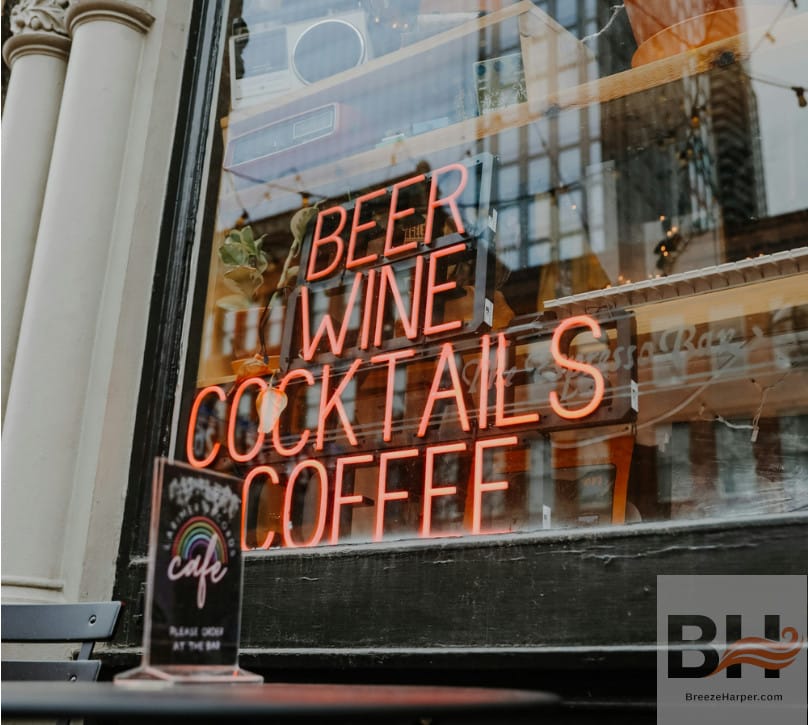Perimenopause, Coffee, and Wine
For over 20 years, I’ve started my mornings without coffee and ended my evenings without wine… Over time, I realized how deeply these substances are normalized in our society—not because they nourish us, but because they help us survive a culture of burnout.

A Midlife Reset Rooted in Nourishment, Not Addiction
By Dr. Breeze Harper, Certified Menopause Coaching Specialist at Dragon Fire Wellness
For over 20 years, I’ve started my mornings without coffee and ended my evenings without wine.
Not because I’m "super disciplined" or anti-pleasure—but because I had to find alternatives. I’m allergic to coffee, and I never developed a taste for alcohol. Over time, I realized how deeply these substances are normalized in our society—not because they nourish us, but because they help us survive a culture of burnout.
As a certified menopause coach working with women and others navigating perimenopause and menopause, I hear it constantly:
“I need coffee to function.”
“I can’t sleep without wine.”
“I’m used to eating at 9 p.m.—it’s my comfort.”
I hear you.
I understand.
And I offer no judgment.
But I also invite you to consider that what we've been sold as "normal" might be part of why we're feeling depleted, foggy, inflamed, or unable to rest.
💥 Late-Stage Capitalism Created the Problem—Then Sold You the Solution
We live in a culture that teaches us:
- Coffee = productivity
- Wine = reward
- Late-night snacks = comfort
But in reality, those rituals often:
- Spike cortisol and adrenaline
- Disrupt estrogen metabolism
- Trigger night sweats, brain fog, and fragmented sleep
- Deepen gut inflammation and hormonal chaos
Most of us weren’t taught how to actually support our bodies.
We were taught how to suppress symptoms and "push through."
That’s why what I teach isn't about restriction—it's about reclamation.
🌿 My Morning and Evening Rituals
🌅 Morning
I start my day with a nutrient-dense herbal tonic that includes:
- Stinging nettle infusion (mineral rich)
- Spirulina and chlorella (detoxifying)
- Fresh ginger root (anti-inflammatory)
- Ginkgo leaf powder (brain circulation)
- Seven mushroom powder (adaptogenic support)
- ACV, turmeric, black pepper, and a little stevia
It gently energizes me—no crash, no jitters, just deep support.
Then I eat a tempeh bowl with sautéed greens, giving my body protein, fiber, iron, and folate to support muscle recovery, gut health, and stable energy.
🌙 Evening
Instead of wine or late-night snacks, I use:
- Passionflower tea
- Reishi mushroom blends
- Lemon balm, chamomile, or tart cherry juice
- Stevia-sweetened tonics or golden milk
These calm my nervous system without taxing my hormones. They help me rest, recover, and reset.
🕕 Why I Don’t Eat After 6 or 7 p.m.
As we enter perimenopause, our digestive efficiency slows—especially in the evening. Eating late can:
- Increase gastrointestinal discomfort
- Disrupt melatonin and hormone balance
- Trigger hot flashes, reflux, and interrupted sleep
Even healthy food eaten late can keep you up.
If you must eat, choose non-spicy, non-sugary, non-greasy options.
Give your digestive system a 3–4 hour buffer before bed to allow your body to focus on healing—not digesting.
🐉 Bonus: Want to Explore These Themes Through Storytelling?
If you're enjoying the insights I've shared about perimenopause, holistic health, and midlife empowerment, I invite you to check out my latest novel:
🌘 The Dragon Comes at Night
This first-of-its-kind fantasy novella features a perimenopausal heroine navigating fragmented sleep, night sweats, digestive shifts, and emotional turbulence—not in silence, but in a world where her bodily changes unlock mystical powers and connect her with dragons and other ancient beings.
It’s MenoFantasy: a new genre I created to center midlife transformation through a lens of imagination, empowerment, and liberation.
✨ It’s for anyone who's ever felt their body shifting—and wondered if that was the beginning of the end, or the beginning of magic.
❤️ My Final Words to You
You are not broken.
Your exhaustion, cravings, and fog are not failures.
They are messages from a body that is asking for something deeper.
Midlife is not the end of your vibrancy. It’s the beginning of a deeper alignment.
Let’s dismantle the myth that you need coffee to feel awake or wine to feel calm.
Instead, let’s build rituals of nourishment that work with your body—not against it.
✨ You deserve clarity without caffeine.
✨ You deserve rest without alcohol.
✨ You deserve joy that doesn’t come in a package.
And yes—you can absolutely change.
Give yourself 4–6 weeks. Let your palate reset. Let your body remember.
I'm here when you're ready.
⚠️ Disclaimer
This content is intended for educational purposes only. I am a certified menopause coaching specialist, not a medical doctor. The information shared here is based on peer-reviewed research, lived experience, and coaching practice. However, please consult your healthcare provider before making dietary, supplement, or lifestyle changes—especially if you have a history of chronic illness, genetic conditions, or are taking medication. Your body is unique, and personalized care matters.
